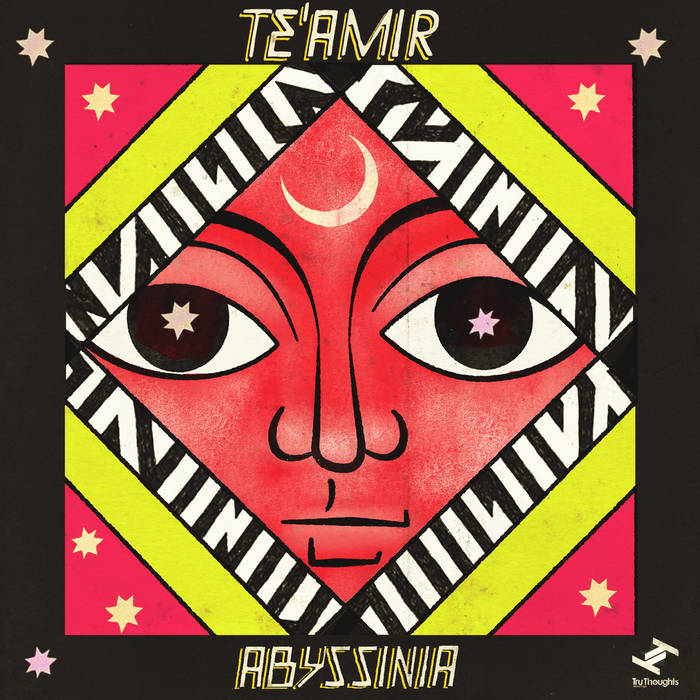Te'Amir - Abyssinia
Written by Chi Chi Thalken on July 31, 2018Te’Amir might not be a name you know yet, but chances are that you’re familiar with a project that the Los Angeles drummer/producer has contributed to, whether it be as Aloe Blacc’s touring drummer, working as part of the Ethio Cali ensemble, or collaborating with Miguel Atwood-Ferguson. This whole time he’s also been making some terrific music as a solo artist, and no is as good a time as any to get familiar, as he drops his latest EP, Abyssinia.
The two things to know about Te’Amir going into this EP is that he’s a drummer, and that he’s Ethiopian American. The drummer part is important, because the complex rhythms he cooks up on this EP set his music apart from other producer-driven projects before you even get to the rest of the EP special. His Ethiopian heritage is important because this EP is about Te’Amir exploring his heritage through the music of the heyday of Ethiopian jazz and funk of the ‘60s and ‘70s and filtering it through his own lens to update it for his current context living in L.A. To help him realize his vision, he brings in vocalist Dustin Warren, Miguel Atwood-Ferguson on strings, Rebekah Raff on harp, and Randal Fisher on sax. The resulting sound is a style of music that brings in jazz, psychedelic, soul, R&B, and hip hop, all into one unique listening experience. This is something that easily could have ended up sounding muddled, like he was trying to much, but Te’Amir has enough experience and knowhow to pull this off successfully. I think ultimately what makes it work so well is that Te’Amir has worked with so many different people over the course of his career and listened to and internalized so many different styles of music, when he goes to compose and build these tracks, he has a really good feel for what works and what doesn’t. On a track like “The Quest,” featuring Warren, Te’Amir is really just writing a classic soul ballad, but then finds ways to arrange the instrumentation in such a way to allow guitar licks and strings to make homage to his Ethiopian roots. Then, of course, you have a closing track like “Afrika,” where it’s more the case of Te’Amir writing a song completely in the style of the Ethiopian Jazz he loves, with maybe just a few tiny modern twists to the way the song was written and recorded. Regardless of where on the spectrum the music falls, the key is that Te’Amir is an incredibly talented drummer, producer, writer, and arranger, and it all comes together on Abyssinia to form a really rich and complex listening experience that feels much longer than the five songs that are here.
If you don’t already know Te’Amir, get to know him now. Abyssinia is the work of a musician with a lot of talent and knowledge, with genuine curiosity and joy coming through in his compositions. It manages to pay respects to his roots, while also sounding completely modern and relevant.
| Title: | Te'Amir - Abyssinia |
|---|---|
| Label: | Tru Thoughts |
| Year: | 2018 |
| Rating: | 8/10 |

